Projects
Supporting innovative, cutting edge ideas, the Research Innovation Fund (RIF) provides seed grants for cross-college collaborative projects.
How do I apply?
Project Description
Media
Filters
- Project Types
- All
- Animal Health
- Aquaculture
- Automation and Robotics
- communities
- Communities/Farmers/Relations
- Computational Modeling
- Controlled Environment Agriculture
- Crop Production
- Dairy/Livestock Production
- Data Integration and Processing
- Farmers
- Farmers, Communities, Relationships
- Food Safety
- International Agriculture
- Iot and Networks
- Machine learning
- Machine Learning
- Plant Breeding
- relations
- Sensing Technology
- Soil
- Trustworthy AI
- Years
- Project Creators
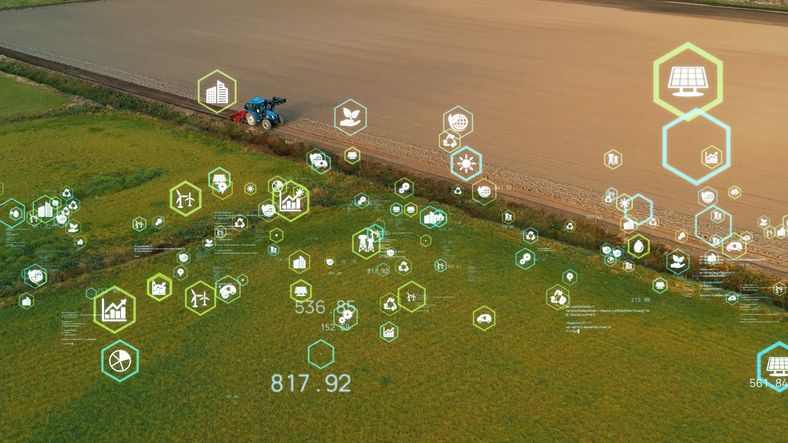
Novel Human-Machine Interface in Agriculture for Better Data Collection and Agronomic Assistance
Digital agronomy has the potential to significantly improve both crop productivity and environmental stewardship by optimizing several aspects of crop management including input placement, resource use, and timing of operations. Curating management data on the farm for digital agronomy applications requires significant time, skill, and attention from the farmer, which explains in multiple instances the limited availability of that data. Without a way to collect farm data systematically and reliably, small and medium farmers may lag behind in the digital revolution happening in agriculture, hindering their ability to remain competitive and meet increasing environmental standards. This project proposes a novel approach to both simplify and improve crop management data collection process with a novel human-machine interface solution. An interactive voice system in the tractor’s cabin can be used to exhaustively collect farm management data more reliably and efficiently than current crop management data recording processes and provide tactical answers to farmers.
Louis Longchamps (CALS), Wendy Ju (CIS), Immanuel Trummer (COE), Diane Bailey (CALS), Mike Stanyard (CALS), Erik Smith (CALS), Michael Hunter (CALS)
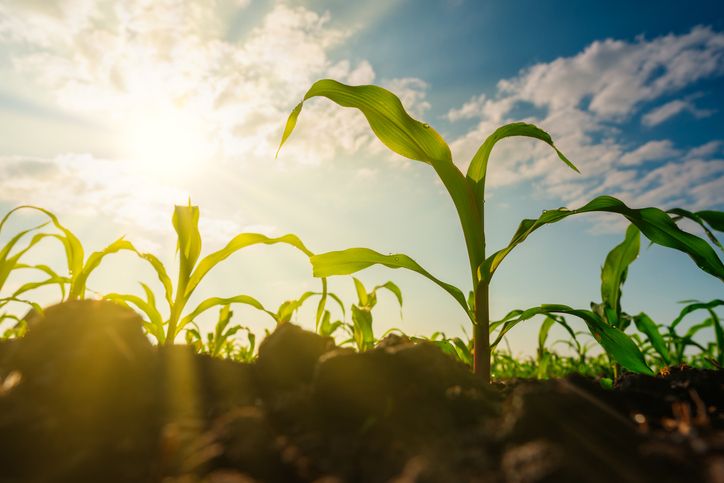
Multi-sensor Crop Monitoring Platform
This project intends to build a ground-based crop monitoring platform that can analyze crop physiology and canopy characteristics by collecting data during the growing season of maize. Several sensing technologies including a line sensor, an RGB camera, and a lidar will be equipped to the platform to help collect crop physiology data at a high frequency. This platform will be deployed on a maize field of the campus farm where researchers can obtain accurate trends of the maize growth. Currently, the platform works well in a laboratory environment but faces issues in the field due to the effect of the bright sunlight on the ability of sensors to measure crop height at high throughput. The goal is to debug and improve the existing line sensing sensor so that it works on real farms with robustness. If time permits, an automated movement, and navigation system can be added to the platform. This allows the platform to travel straight along a row of maize while collecting data on its own.
Chenxi Qian (GR-COE); Louis Longchamps (CALS); Joseph Skovira (COE)
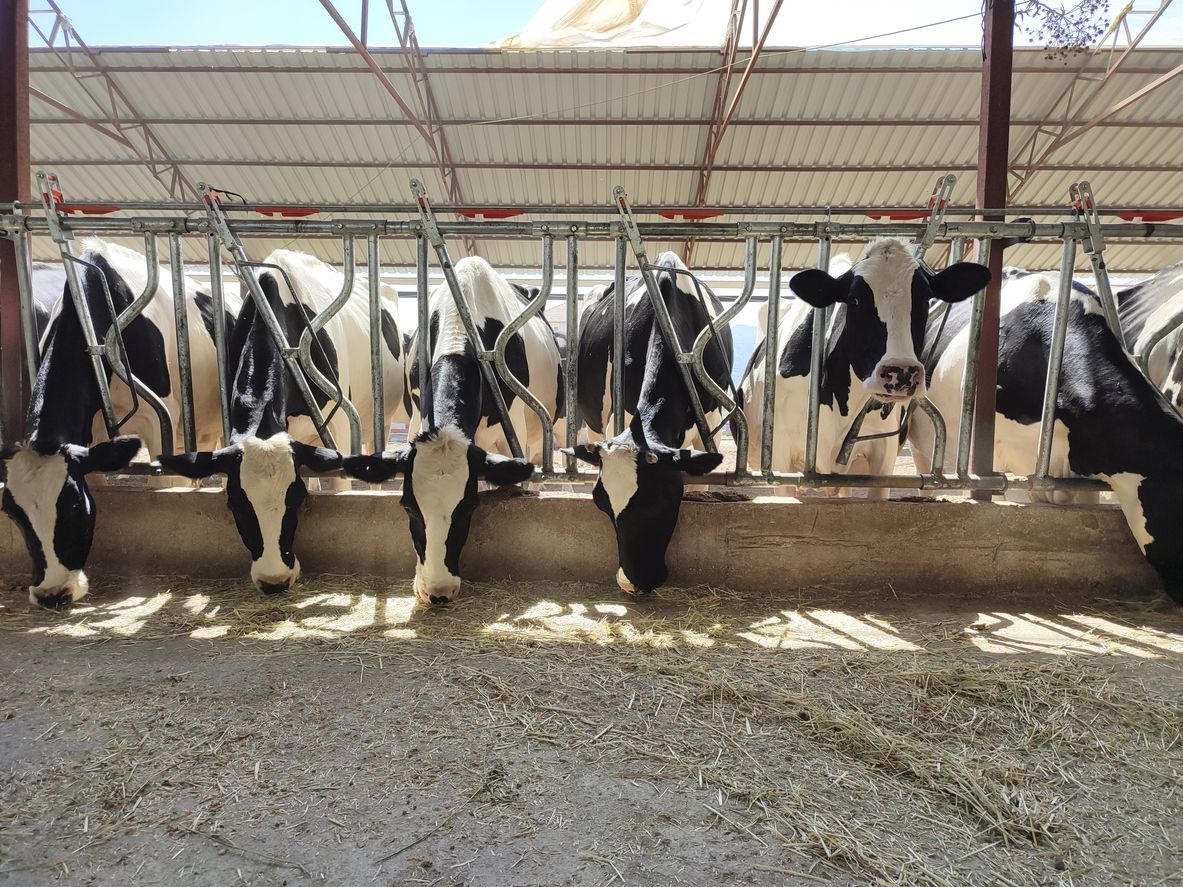
A Social Network for Dairy Cattle
The analysis of animals’ behavior is an essential part for understanding their state of health, in many senses. A body condition score (BCS) can be used as a part of such analysis: such a score is based on estimates of fat on the animals’ upper hind quarters, coat condition, visibility of bone structure, and other indicators. When coupled with other metrics, such as biometric data, milk quantity and quality data, etc, we arrive at a data set that can be used as an input for predicting reproductive performance and productivity, and even effectiveness of nutrition, heat stress, and other health factors. Images / video footage of dairy cattle can serve as input in the task of classifying the health situation of that individual. More specifically, by extracting features from pixels, a deep learning model can learn the underlying correlation between the input pictures and the overall BCS of those cattle. These results would then be utilized for constructing a network of social networks of cattle. This social network can visualize all important indicators for the health of the individual cattle and the herd and become a powerful tool for the animal experts and digital farms.
Tiancheng Yuan (GR-COE); Ken Birman (CIS); Julio Giordano (CALS)

Optimized pathogen environmental monitoring program in food processing facilities through reinforcement learning and privatized federated learning algorithms
The key challenges in pathogen environmental monitoring programs stem from the high cost in testing and experimentation, the high risk in contamination and outbreak, and the reluctance of individual facilities to share data due to privacy and liability concerns. This project uses Listeria monocytogenes contamination in food processing facilities as a model to develop new digital-twin models augmented with privacy-guaranteed machine learning solutions for food safety assessment. This proposed integrative framework will provide optimized allocation of testing resources, risk-averse prediction of effective corrective measures, and privacy guarantees to incentivize data sharing among stakeholders and be used as a model for future food safety systems.
Renata Ivanek (CVM), Martin Wiedmann (CALS); Jayadev Acharya (COE), Qing Zhao (COE)
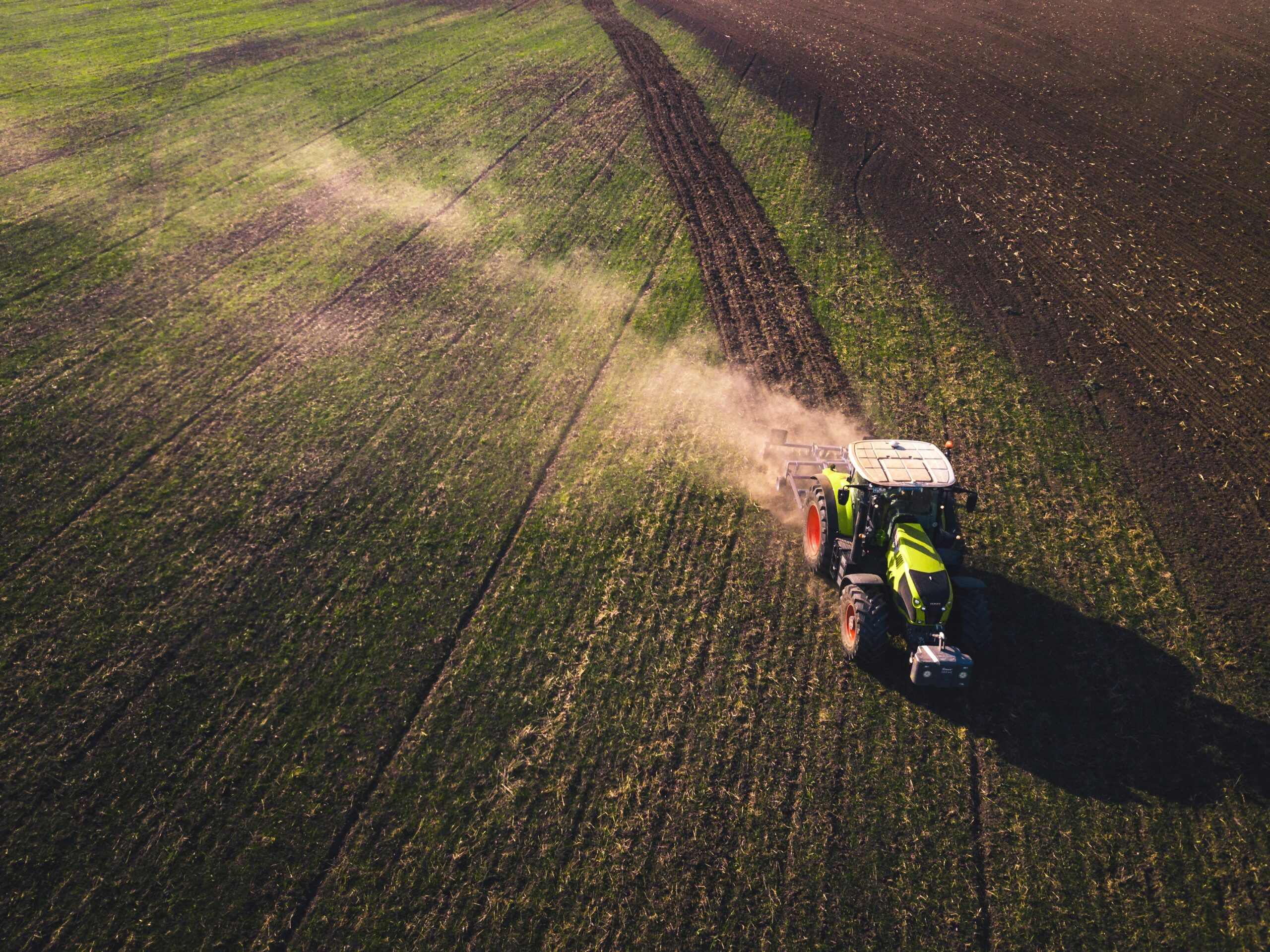
Carbon farming: Combining machine intelligence, big data and process models to support this emerging sector
Restoration of soil organic carbon plays a critical role in addressing climate change while improving agricultural efficiency and reversing land degradation. However, scaling up of soil carbon sequestration is impeded by the high cost of monitoring, and by high levels of uncertainty in soil carbon predictions. Current soil organic carbon maps are based only on spatial interpolation of geographic, environmental, and climatic co-variates. As such, they do not distinguish the impacts of land management, including factors such as tillage regimes, crop rotations, crop and varietal selection, residue management, manure management, irrigation, cover crops, soil and water conservation etc. To provide an improved soil carbon maps that include these factors, we will train and validate machine learning and deep learning models using detailed spatial data on soils, vegetation, climate, and cropping practices. This project aims to create a step change in the accuracy of prediction of soil organic carbon by combining Cornell’s state-of-the-art soil mechanistic modeling with machine learning, deep learning, and spatially-explicit big data to create a “grey-box digital twin”. This will provide a platform to drive evidence-based policy and support massive scaling up of optimized investment in soil health and climate-change mitigation.
Dominic Woolf (CALS), Johannes Lehmann (CALS), Fengqi You (COE)

Scalable digital sensors of the skies and soils: An Internet of Things approach to improve farm-scale weather forecasts of extreme heat, drought and rainfall
Extreme weather is a serious threat to agriculture, economic vitality, human safety, and physical infrastructure in farming communities throughout the world. Climate change is likely to increase the risk of severe weather, particularly heat waves, droughts, and floods. To flourish in spite of these hazards, farmers, growers, agro-business, and food producers require a toolkit of political, infrastructural, and technological resources to manage the risk of extremes. Numerical models of weather and climate will be among the most important of these tools because they empower decision makers with information to anticipate and prepare for consequential events. The proposed research will monitor and forecast key variables for predicting extreme weather at State, County, and Farm scales in the Northeast by leveraging an existing wireless “Internet of Things” (IoT). We will develop open source tools for numerical weather and climate prediction to empower decision makers with information to anticipate and prepare for consequential events, and to provide farmers, growers, agro-business, and food producers with a toolkit for predicting key hazards to agriculture, particularly during the warm season when extreme rainfall, heatwaves, and droughts often exact severe crop losses.
Toby Ault (CALS), Max Zhang (COE)
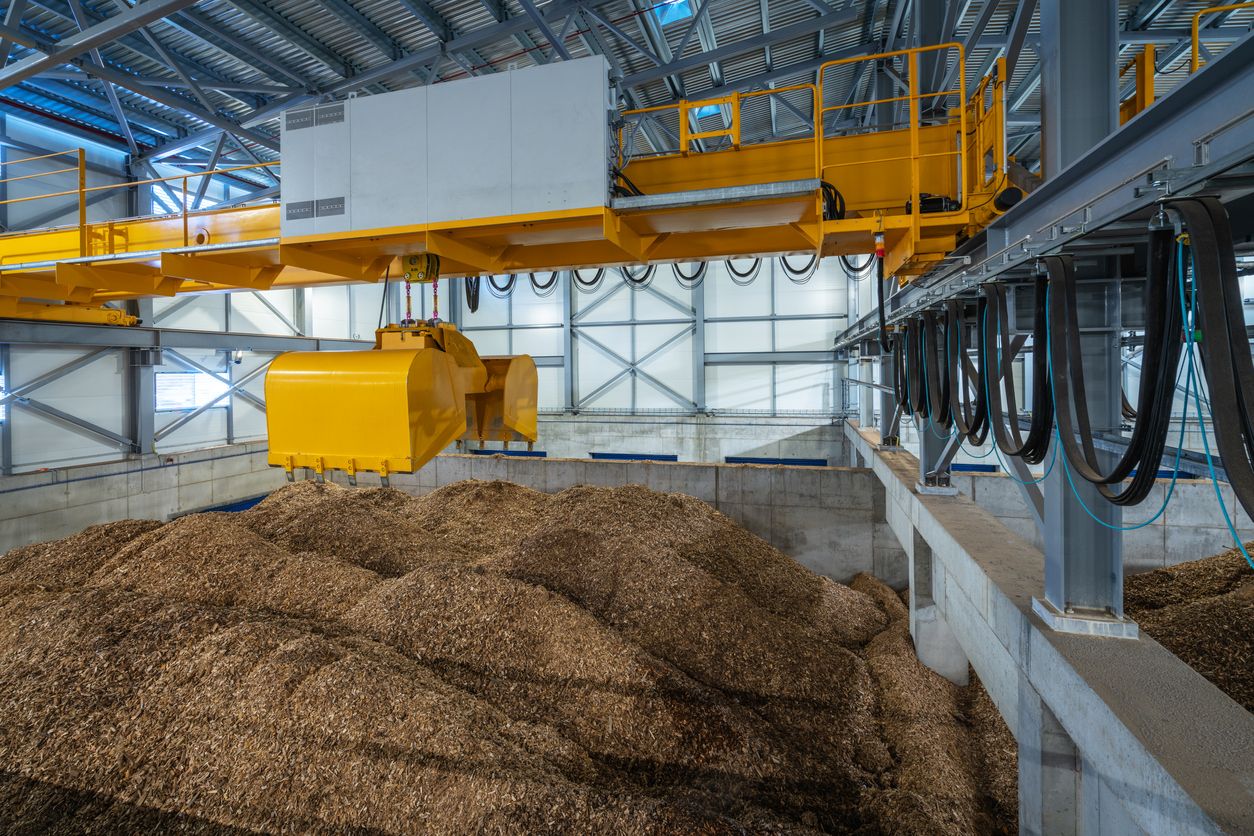
Digital Tools for Systems Analysis and Data Analytics of Biomass Pyrolysis in Agriculture
Biomass is a promising source of renewable energy with eco-friendly characteristic receiving great attention especially in Digital Agriculture communities. Biomass pyrolysis is the thermal decomposition of biomass occurring in the absence of oxygen. Depending on the final temperature and reaction time, pyrolysis technologies can be classified into two types: slow pyrolysis and fast pyrolysis. The yields as well as the physical and chemical characteristics of the products vary considerably according to the types of pyrolysis technologies. This research project is to study the environmental impact of spatial analysis of biomass processing considering specific pyrolysis technologies under economic and environmental criteria. By performance life cycle and techno-economic analysis/optimization biomass supply chains, we leverage data science and systems engineering methods with agricultural systems. We adopt life cycle optimization method to balance both the techno-economic and life cycle environmental impact objectives. Two major activities of my work are life cycle assessment and systems modeling. In life cycle assessment, we evaluate the global warming potential (GWP) of different pyrolysis technologies using existing technology data and Ecoinvent V3.5. In problem modeling, a bi-objective optimization model is formulated in order to balance the economic and environmental objectives.
Ning Zhao (GR- COE), Primary Advisor: Fengqi You (COE), Secondary Advisor: Johannes Lehman (CALS)
- ALL
- Computational Modeling
- Data Integration and Processing
- Machine Learning
- Automation and Robotics
- Sensing Technology
- Iot and Networks
- Trustworthy AI
- Plant Breeding
- Crop Production
- Controlled Environment Agriculture
- Soil
- Dairy/Livestock Production
- Aquaculture
- Food Safety
- Animal Health
- International Agriculture
- Communities/Farmers/Relations
Become a Fellow
Stay up to Date
If you have a disability and are having trouble accessing information on this website or need materials in an alternate format, contact [email protected] for assistance.
CIDA Copyright 2023 | CIDA is an equal opportunity employer | Terms of Use | Privacy Policy